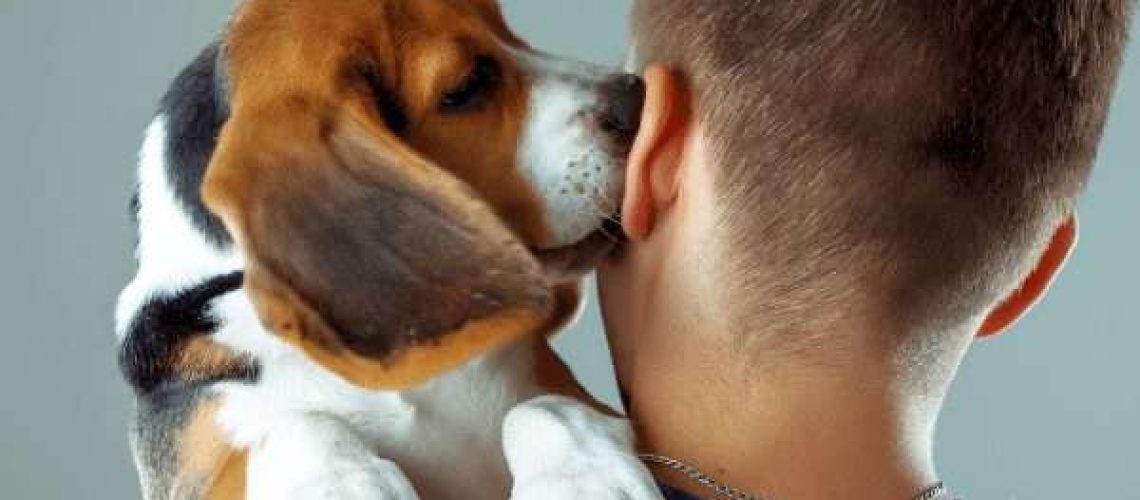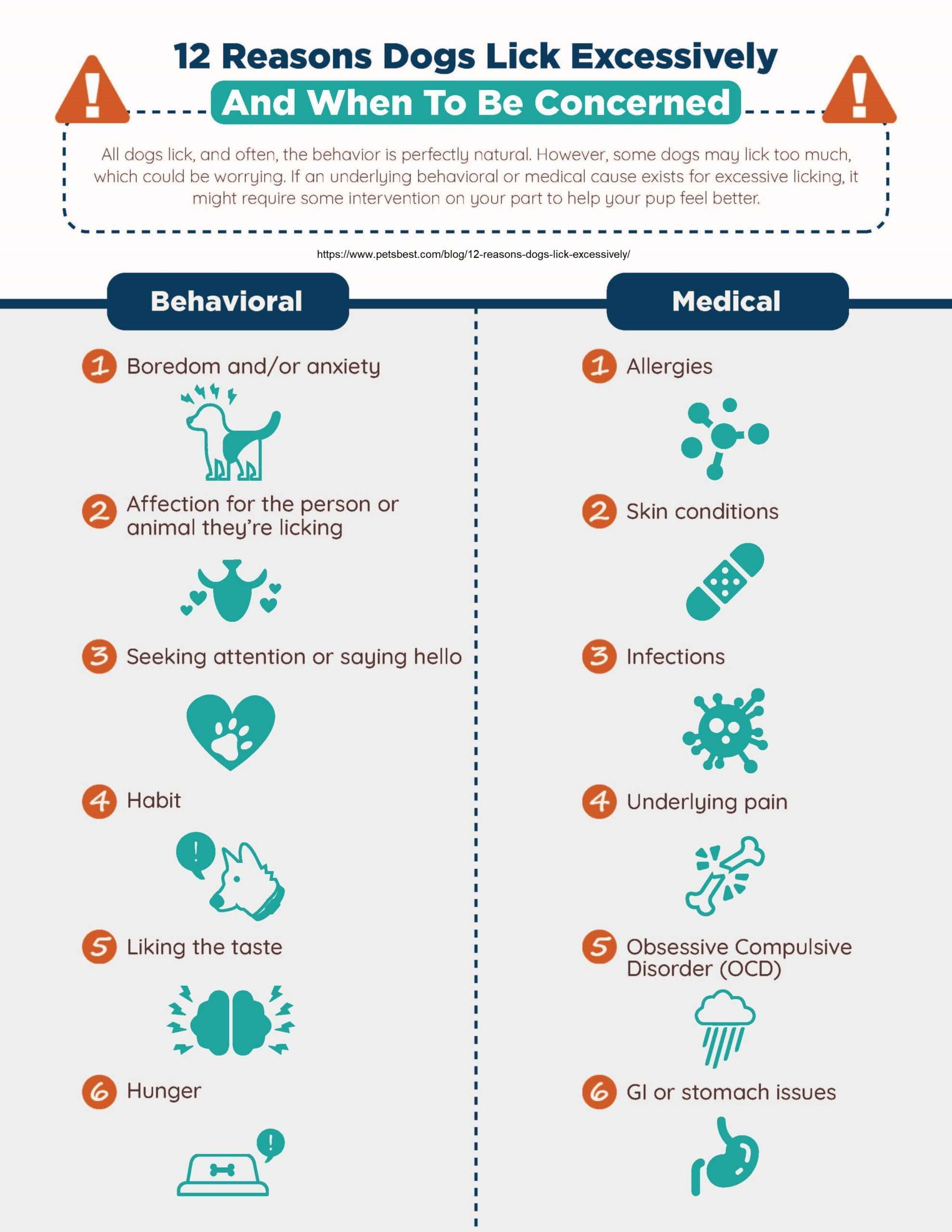Key Takeaways:
- Dogs may lick their owners' ears as a sign of affection and to show submission.
- Licking ears can also be a way for dogs to gather information about their owners through scent and taste.
- Some dogs may lick their owners' ears as a form of grooming, mimicking the behavior they would display towards their own pack members.
- Ear licking can be a learned behavior that is reinforced by positive responses from the owner, such as attention or affection.
- If excessive ear licking persists, it is important to check for any underlying medical issues or discomfort that may be causing the behavior.
Do you ever wonder why your furry friend can't resist giving your ears a good lick? It turns out there's more to this adorable behavior than meets the eye. Understanding why dogs lick our ears can provide valuable insights into their emotions and strengthen the bond between you and your canine companion. In fact, research shows that dogs use licking as a way to communicate affection, trust, and even submission. So, if you've ever questioned why your dog showers your ears with slobbery kisses, get ready to uncover the fascinating reasons behind this endearing habit. Get ready to dive into the world of canine communication and discover the hidden meanings behind those wet ear licks!
Why does my dog lick my ears?
Dogs lick their owner's ears for various reasons. One possible reason is that they are showing affection and trying to bond with you. Licking is a natural behavior for dogs, and it is their way of communicating with humans. By licking your ears, your dog is expressing love and trust.
Another reason why dogs may lick your ears is to seek attention. Dogs are social animals and crave interaction with their owners. Licking your ears can be their way of getting your attention and seeking physical contact.
Reasons why dogs lick their owner's ears:
- To show affection
- To seek attention
- To communicate
Is it normal for dogs to lick their owner's ears?
Yes, it is normal for dogs to lick their owner's ears. Licking is a common behavior in dogs, and they use it as a way to interact with humans. It is important to note that some dogs may have a stronger inclination to lick than others, so the frequency of ear licking can vary between individual dogs.
Does my dog lick my ears because they like the taste?
No, dogs do not lick human ears because they like the taste. While some dogs may be attracted to certain scents or tastes on the skin, such as sweat or lotion, the primary motivation behind ear licking is not related to taste. Dogs primarily use licking as a form of communication and affection towards their owners.
Can a dog licking my ears be a sign of affection?
Yes, when a dog licks your ears, it can be a sign of affection. Dogs have different ways of showing love and bonding with their owners, and licking is one of them. It is a way for your dog to express their affection and strengthen the bond between you.
Are there any health reasons why dogs lick their owner's ears?
In some cases, excessive ear licking in dogs can be a sign of underlying health issues. Dogs may lick their owner's ears if they detect an infection or irritation in the ear. If your dog's ear licking is accompanied by other symptoms such as redness, swelling, discharge, or a foul odor from the ear, it is important to consult a veterinarian for proper diagnosis and treatment.
What should I do if my dog's ear licking becomes excessive or bothersome?
If your dog's ear licking becomes excessive or bothersome, it is important to address the issue. Excessive licking can lead to skin irritation or infections. Firstly, you should observe if there are any signs of discomfort or pain in your dog's ears. If so, it is recommended to seek veterinary advice to rule out any underlying medical conditions.
If no medical issues are found, you can try redirecting your dog's behavior by providing alternative activities that engage them mentally and physically. This can include puzzle toys, interactive playtime, or training sessions. Additionally, teaching your dog basic obedience commands like "leave it" can help discourage unwanted licking behaviors.
How can I train my dog to stop licking my ears if I don't like it?
If you don't enjoy your dog licking your ears and want them to stop this behavior altogether, consistent training and positive reinforcement techniques can be effective. Here are some steps you can take:
- Set boundaries: Make it clear through verbal cues and body language that you do not want your dog to lick your ears. Consistency is key in establishing boundaries.
- Redirect their behavior: Whenever your dog starts to lick your ears, redirect their attention to a more appropriate behavior or activity, such as sitting or offering a toy. Reward them with praise and treats for following the redirection.
- Provide an alternative outlet: Give your dog plenty of opportunities for social interaction, playtime, and mental stimulation. This can help redirect their focus away from licking your ears.
- Positive reinforcement: Reward your dog with treats and praise when they refrain from licking your ears or respond well to redirection. Positive reinforcement helps reinforce desired behaviors.
Remember that training takes time and patience. Consistency, positive reinforcement, and clear communication are essential in teaching your dog to stop licking your ears if you find it bothersome.
Is it normal for dogs to lick their owner's ears?
Understanding Dog Behavior
Dogs have a unique way of communicating with their owners, and licking is one of the ways they express themselves. While it may seem unusual, it is actually quite normal for dogs to lick their owner's ears. Licking is a natural behavior for dogs, and it serves various purposes. It can be a sign of affection, submission, or even an attempt to communicate something. Just like humans use words to convey their feelings, dogs use licking as a form of communication.
The Reasons Behind Ear Licking
There are several reasons why your dog may choose to lick your ears. One possible reason is that they simply enjoy the taste or smell of your skin. Dogs have a keen sense of smell, and they may find the scent of your ears intriguing. Another reason could be that they are seeking attention or trying to establish a bond with you. Licking releases endorphins in dogs, making them feel good and reinforcing positive emotions. So if your dog licks your ears, it could be their way of showing love and affection.
Tips for Dealing with Ear Licking
If you find your dog's ear licking behavior bothersome or excessive, there are some steps you can take to address it. Firstly, ensure that your dog's basic needs are met - make sure they have enough exercise, mental stimulation, and social interaction. This can help reduce any anxiety or restlessness that may contribute to excessive licking behavior. Secondly, redirect their attention by offering them appropriate chew toys or engaging them in interactive play sessions. By providing alternative outlets for their energy and oral fixation, you can discourage them from focusing on licking your ears.
Remember that every dog is unique, so what works for one may not work for another. If the ear licking behavior persists or becomes a concern, it is always a good idea to consult with a professional dog trainer or veterinarian for further guidance. They can assess the situation and provide tailored advice based on your dog's specific needs.
Does my dog lick my ears because they like the taste?
Understanding a dog's sense of taste
Dogs have a strong sense of taste, but their preferences may differ from ours. While humans enjoy a variety of flavors, dogs have fewer taste buds and are more attracted to certain tastes like meat or sweet flavors. So, when your dog licks your ears, it's unlikely that they are doing it for the taste alone. There might be other reasons behind this behavior.
Possible reasons for ear licking
One possible reason why dogs lick ears is to show affection or seek attention. Dogs use licking as a way to communicate with their owners and establish a bond. By licking your ears, your dog may be trying to express their love and closeness towards you.
Another reason could be that your dog is exploring scents and tastes. Dogs have an incredible sense of smell, and by licking your ears, they might be trying to gather information about you or simply investigating new smells in their environment.
It's important to note that excessive ear licking can also indicate an underlying health issue, such as allergies or ear infections. If you notice any redness, swelling, or discharge in your dog's ears along with frequent licking, it's best to consult a veterinarian for further evaluation.
Can a dog licking my ears be a sign of affection?
The language of canine affection
Yes, when a dog licks your ears, it can indeed be a sign of affection. Licking is one way dogs express their love and attachment towards their owners. It's similar to how they would lick each other within their pack as a gesture of bonding and social interaction.
Bonding through grooming behavior
Licking is also reminiscent of grooming behavior seen in wild canines. When a mother dog licks her puppies, it not only helps keep them clean but also strengthens the bond between them. Similarly, when your dog licks your ears, they are displaying their affection and desire to care for you as part of their pack.
It's important to understand that each dog has its own unique way of showing affection. While some dogs may prefer ear licking, others might show their love through cuddling, wagging their tail, or giving gentle nuzzles. As an owner, it's crucial to recognize and appreciate these gestures of affection from your furry friend.
Are there any health reasons why dogs lick their owner's ears?
Possible health concerns
While occasional ear licking is usually harmless and normal behavior for dogs, excessive or persistent ear licking can be a cause for concern. It could indicate an underlying health issue that requires attention.
Allergies and infections
One common reason for excessive ear licking is allergies. Dogs can develop allergies to certain foods or environmental factors like pollen or dust mites. These allergies can lead to itchiness in the ears, causing dogs to lick excessively in an attempt to relieve the discomfort.
Ear infections are another potential health issue that may trigger increased ear licking. Bacteria or yeast can infect a dog's ears, leading to inflammation and itchiness. Dogs may resort to excessive licking as a way to alleviate the irritation caused by the infection.
If you notice redness, swelling, foul odor, discharge, or your dog seems particularly bothered by their ears' condition, it's crucial to consult a veterinarian promptly. They will be able to diagnose any underlying health problems and provide appropriate treatment options.
What should I do if my dog's ear licking becomes excessive or bothersome?
Addressing excessive ear licking
If your dog's ear licking becomes excessive or bothersome, it's essential to identify the underlying cause and take appropriate action.
Consulting a veterinarian
The first step is to consult a veterinarian. They will examine your dog's ears for any signs of infection, allergies, or other health issues. Based on their findings, they may recommend specific treatments such as medication, dietary changes, or ear cleaning routines.
It's also crucial to ensure that your dog receives regular veterinary check-ups and vaccinations. Routine examinations can help detect any potential health problems early on and prevent them from escalating into more serious conditions.
Additionally, providing your dog with plenty of mental and physical stimulation can help redirect their focus away from excessive ear licking. Engage them in interactive play sessions, provide puzzle toys, and ensure they receive regular exercise to keep them mentally and physically satisfied.
How can I train my dog to stop licking my ears if I don't like it?
Training alternatives
If you find your dog's ear licking behavior unpleasant or uncomfortable, there are ways to discourage this habit through training.
Redirecting attention
One effective method is to redirect your dog's attention whenever they start licking your ears. You can offer them an alternative behavior to engage in, such as sitting or offering a paw for a shake. Reward them with treats or praise when they comply with the new behavior instead of licking your ears.
Consistency is key when training your dog. Reinforce the desired behavior consistently and avoid inadvertently rewarding the unwanted behavior by giving attention or reacting strongly when they lick your ears.
Using positive reinforcement techniques like clicker training can be helpful in teaching your dog new behaviors and breaking undesirable habits. Patience and persistence are essential during the training process as it may take time for your dog to understand what is expected of them.
Remember that training should always be based on positive reinforcement rather than punishment. Harsh or negative methods can harm the trust and bond between you and your dog.
In conclusion, while dogs may lick their owner's ears for various reasons, it is often a sign of affection or curiosity rather than a simple preference for taste. However, it's crucial to monitor excessive ear licking as it could indicate underlying health issues that require veterinary attention. By understanding your dog's behavior and providing appropriate training and care, you can ensure a happy and healthy relationship with your furry companion.
In conclusion, dogs may lick our ears as a way to show affection or seek attention. It could also be a sign of their instinctual behavior, like grooming or investigating scents. Remember to always observe your dog's body language and consult with a veterinarian if you have concerns about their behavior.
Should I let my dog lick my ears?
Dogs rely on their mouths to explore and ear licking is one way they do so. However, it is important to exercise caution if the behavior becomes excessive. Excessive moisture in the ear can potentially lead to an ear infection, so it is recommended to discourage frequent licking.
What happens if I let my dog lick my ear?
If your dog is licking your ears and you're okay with it, there's no need to interrupt or stop the dog. Your dog is expressing feelings of safety and happiness towards you, and if you both enjoy it, there's no harm in letting your dog lick your ears. However, it's important to note that not everyone may be comfortable with having their ears licked.
Why does my dog lick me so much?
Dogs often lick their owners as a way to express love, seek attention, self-soothe when they're feeling stressed, show empathy, or simply because they enjoy the taste. However, if a dog excessively licks, it could indicate feelings of anxiety, discomfort, or pain.
Why do I like my ears licked?
The ears contain 120 acupressure points, which is why it is important to focus on stimulating the ears. Actions such as biting, caressing, licking, and blowing into the ears can greatly arouse a woman.
Do dogs have a favorite person?
Just like humans, dogs form preferences for certain individuals over time based on positive experiences and associations. While some people use treats and rewards to establish strong connections with their pets, the most effective way to cultivate a healthy bond with your dog is through play.
Do dogs like it when you kiss them?
Dogs have a keen understanding of human emotions and can often sense when we are being affectionate, like when we give them kisses. Because they enjoy our affection, most dogs do enjoy being kissed. However, it's not necessarily the act of being kissed that they like, but rather the attention and affection that comes with it.

















